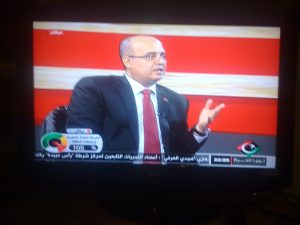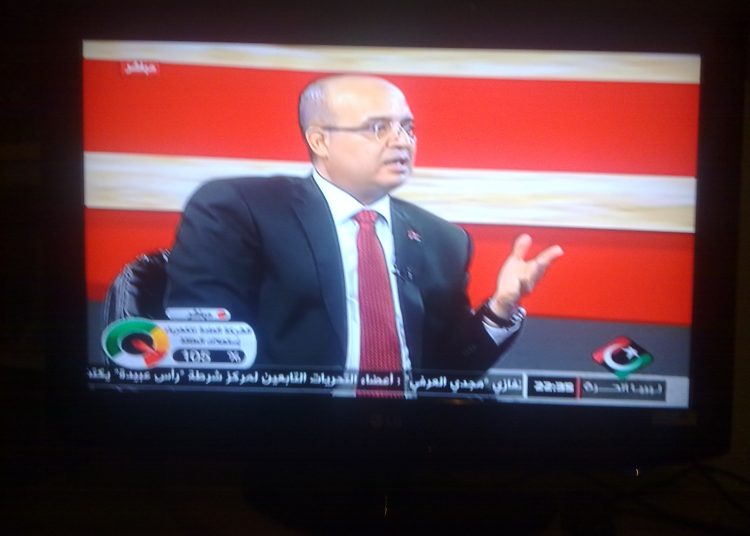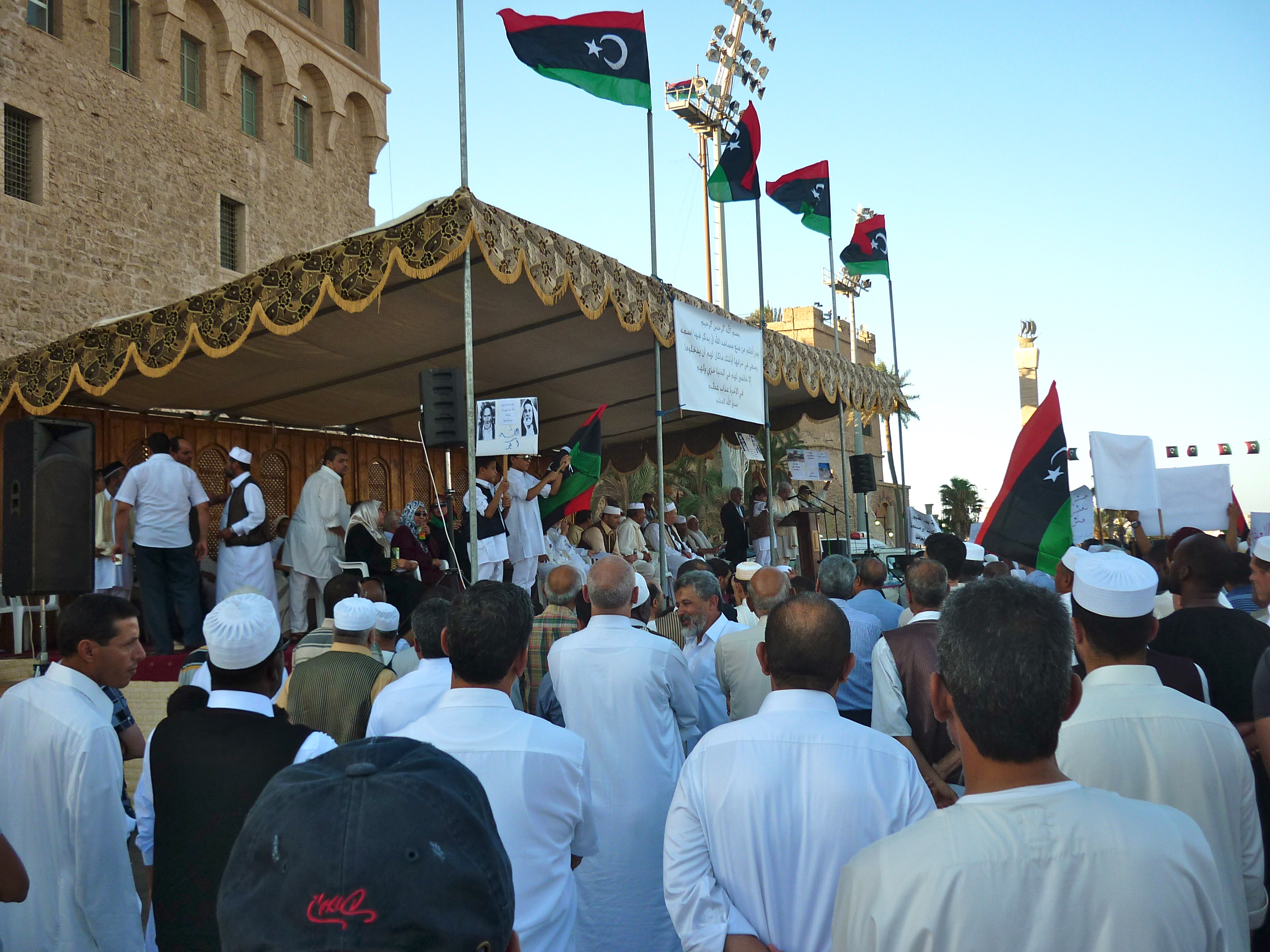
By Sami Zaptia.
Tripoli, 31 August:
In a rarity in the nascent Libyan political arena, one of the leading contenders for the post of prime minister appeared on a television show last night promoting himself for the job.
Current Electricity Minister, Awad Barasi, appeared live on Libya Al-Hurra TV last night saying that he ‘had a vision and plan’ for being prime minister.
Barasi, who hails from the east and has received much public criticism for the electricity outages plaguing the country, is backed by his Muslim Brotherhood party the Justice and Development Party (J&D).
‘I am a practical, a man concerned with the execution of ideas and policies’, he retorted to the interviewer’s question of what made him a good prime ministerial candidate. ‘People saw how I dealt with crises. I had been asked to put myself forward as candidate for prime minister last November when Al-Kib was chosen as prime minister’, he continued, ‘but I chose not to’.
‘We need a good implementer of policy as prime minister not a theorizing leader. Plans should be implementable and practical – not just good theories’, he continued.
Asked if there was any conflict in him being in the current government and joining a political party, and why he chose this particular party; Barasi felt that it was now acceptable in the new Libya to join a political party. ‘I joined the J&D party in March 2012’.
Without referring to neither his Islamic views nor that of his (Muslim Brotherhood) J&C party, Barasi said: ‘I saw its vision fitted with my vision. I am nationalistic and patriotic’, he quickly added.
Barasi, who quoted the Koran on more than one occasion during the one hour show stressed that ‘I may be a J&C candidate now, but when I become prime minister I will be the prime minister of all Libya. I will form a government of national unity representing all Libya’s political spectrum, he stressed’.
When asked about the past friction between the NTC (legislature) and the Al-Kib government (the executive), Barasi again distanced himself from his present cabinet colleagues and prime minister. ‘I have had no problems working with the NTC‘, he stressed.
However, he went on to reveal that he would form ‘a Ministry of Parliamentary Affairs so as to ensure good cooperation and communication between the GNC and the government’.
On regionalism and tribalism, he stressed that his ‘office manager is from Sabha (the south), and I have employees working for me and with me from all over Libya’.
Asked about his experience and whether it was adequate, he said ‘I am only 46 years old. I am near (British Prime Minister) Cameron’s age, but (US President) Obama is older than me’, he joked.’
Referring to his years of experience working in Dubai and probably trying to highlight the recent criticism received by both the GNC and the government for failing to react quick enough to the recent security crises, Barasi repeated on more than one occasion his ability to work under pressure.
‘People have said I deal well with crises. I excel in taking decisions even in challenging circumstances’, he confidently stressed.
And in what could be interpreted as another indirect criticism of the current Cabinet, Barasi said that he ‘had a plan for example on how the cabinet should operate. Ministers should be more proactive in policy formulation. The cabinet should be smaller consisting only of the main ministries’, he felt.
Asked if he would rearrange the current ministries, Barasi said that he ‘would leave the ministries as they are because rearranging them would cause too much disruption in the short lifetime of the next government’.
Barasi, had prepared a power point slide show which the TV station was displaying as he was fielding questions.
He revealed that he had had a team working for sometime on his policies. These were very comprehensive and included amongst other, the issue of the thuwar (militias), safety and security, weapons on the streets, housing, the infrastructure, investment, decentralization etc.
‘The thuwar are part of the solution they need rehabilitation and training. We need to activate the Warriors Affairs Commission and get them jobs’, he revealed.
Readers will recall that Electricity Minister Barasi was recently hospitalized in Benghazi due to work pressures. Last night during the long interview, he looked robust, fit and healthy.
Minister Barasi, a candidate of the more Islamist leaning J&D party, is a leading contender for the Prime Minister’s job together with Mohamed Abushagur. Abushagur is thought to be favoured by the non-Islamists in the GNC including the National Forces Alliance.
Equally, it had been thought that there was an unofficial agreement between GNC members that if the speaker of the GNC was chosen from the east, which speaker Mohamed Magarief is, that the prime minister would be either from the west or center of the country.
It is not clear, therefore, if the fact that Electricity Minister Barasi is from the east whether this would reduce his chances of success in the prime ministerial race.
At the GNC’s official press conference last Wednesday, official spokesperson Omar Hmaidan confirmed that the GNC had ‘agreed on the criteria for choosing the next prime minister’ These, he revealed would be the standard criteria used by the Integrity Commission as well as the need to be proposed by at least 20 members and not having dual nationality.
The GNC official spokesperson went on to confirm that the GNC was now moving onto ‘the process of choosing the prime minister’ and confirmed that would happen by September 8th.
For more on Minister Barasi’s recent illness and criticism of his handling of the electricity sector see: http://www.libyaherald.com/?p=12830
[/restrict]









